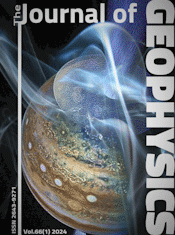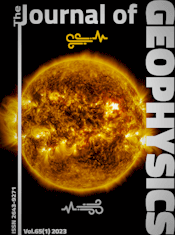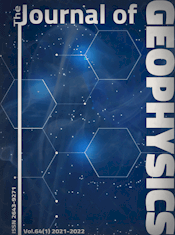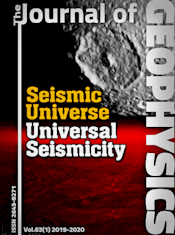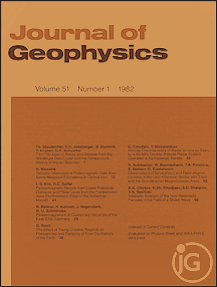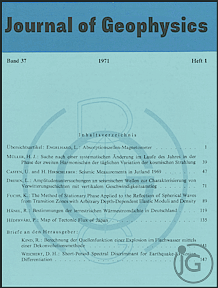Seismic ground motion of sedimentary valleys - example La Molina, Lima, Peru
Article Sidebar
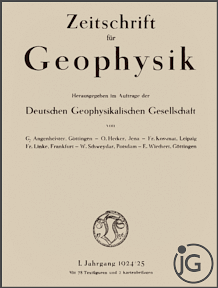
Vols. 1-18 (1924-1944), ISSN 0044-2801
Main Article Content
Abstract
Strong motion accelerograms recorded at two sites in Lima, Peru, during the earthquake of November 9, 1974, exhibit serious dissimilarities although the sites have nearly the same epicentral distance. The two sites are the Instituto Geofisico del Peru in central Lima and the La Molina sediment-filled valley on the periphery of the city. The anomalously strong and prolonged ground motion at the La Molina site seems to be explained by a combined effect of the complex topography of the bedrock and the presence of low-velocity subsurface sediments. In contrast to an intuitive feeling, a strong velocity contrast along the whole sediment-bedrock interface is not necessary. Because severe earthquake effects in La Molina are of site origin, they should be expected to repeat in the future. As indicated by synthetic accelerograms, the anomaly refers to large areas of the La Molina valley and not only to the immediate vicinity of the recording point. For purposes of seismic microzoning and land-use planning, two microzones in the studied part of the valley will probably be appropriate.
 ARK: https://n2t.net/ark:/88439/y042722
ARK: https://n2t.net/ark:/88439/y042722
Permalink: https://geophysicsjournal.com/article/120
Article Details
References
Brady, A.G., Perez, V. (1977) Strong-motion earthquake accelerograms, digitization and analysis; records from Lima, Peru: 1951 to 1974. Open-file report No. 77-587, U.S. Geological Survey, Menlo Park
Červeny, V. (1985) The application of ray tracing to the numerical modeling of seismic wavefields in complex structures. In: Dohr, G.P. (Ed.) Seismic shear waves, pp. 1-124. Geoph. Press, London
Deza, E., Berrocal, J., Silgado, E., Rodriguez, A., Carbonel, C. (1976) Intensidades observadas en Lima por el terremoto del 3 de Octubre de 1974 (informe). Instituto Geofisico del Peru, Lima
Emmerich, H., Korn, M. (1987) Incorporation of attenuation into timedomain computations of seismic wavefields. Geophysics 52 (In press)
Espinosa, A.F., Husid, R., Algermissen, S.T., De las Casas, J. (1977) The Lima earthquake of October 3, 1974: intensity distribution. Bull. Seismol. Soc. Am. 67, 1429-1439
Giesecke, A., Ocola, L., Silgado, E., Herrera, J., Giuliani, H. (1980) El terremoto de Lima del 3 de Octubre de 1974 (informe). Lima: CERESIS/UNESCO
Tucker, B.E., King, J.L. (1984) Dependence of sediment-filled valley response on input amplitude and valley properties. Bull. Seismol. Soc. Am. 74, 153-165
Zahradnik, J. (1982) Seismic response analysis of two-dimensional absorbing structures. Studia Geophys. at Geodaet. 26, 24-41
Zahradnik, J. (1985) Programs for computing and analysing SH wavefields in two-dimensional absorbing block structures. In: N.N. Matveeva (Ed.) Programs for interpreting seismic observations 3 (in Russian), pp. 124-186. Nauka, Leningrad
Zahradnik, J., Hron, F. (1986) Earthquake ground motion at the La Molina sedimentary basin, Lima, Peru. Res. Report to CERESIS, Lima (60 pp., 18 figs., available on request)
Zahradnik, J., Urban, L. (1984) Effect of a simple mountain range on underground seismic motion. Geophys. J.R. Astron. Soc. 79, 167-183



